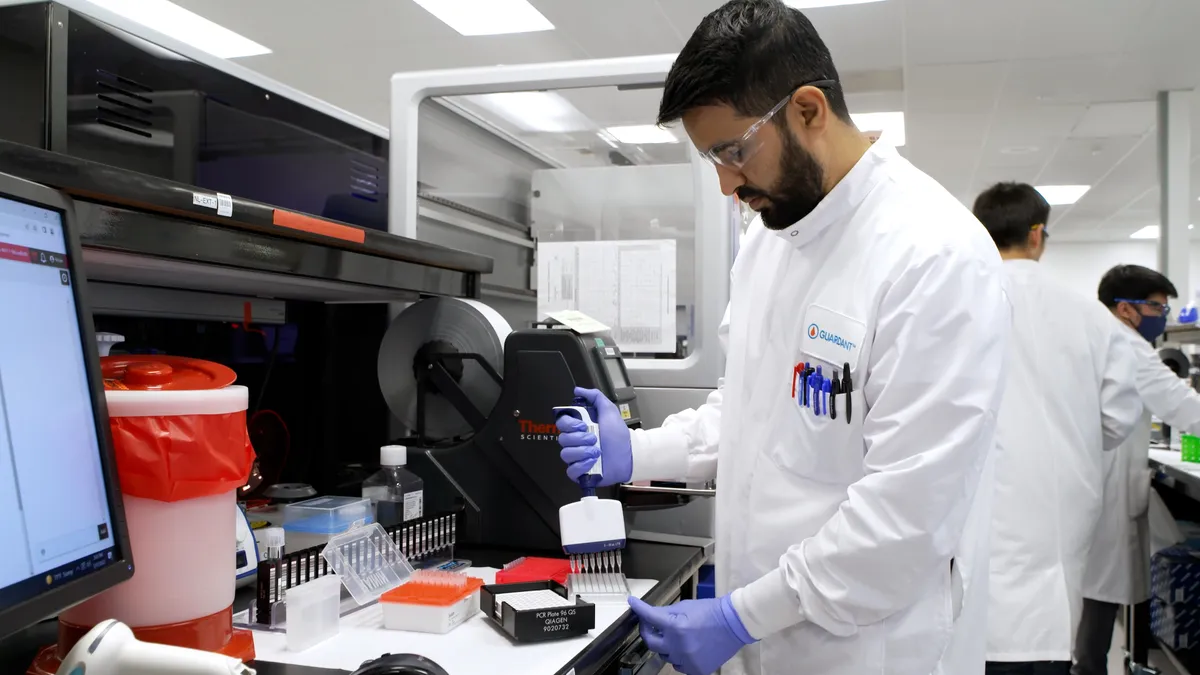Dive Brief:
- Guardant Health shared clinical data on its colorectal cancer screening blood test in The New England Journal of Medicine, as the company and rivals race to get blood tests to market for colon cancer detection.
- The paper, which the NEJM published Thursday, presents data from a study of more than 10,000 people that Guardant ran to support authorization of its Shield DNA blood test.
- Investors sent shares in Guardant down 27% when they first saw data from the study in 2022, but the company viewed the results positively. The Food and Drug Administration is reviewing a filing for approval that could establish Shield as a rival to Exact Sciences’ stool-based Cologuard.
Dive Insight:
Physicians already screen for colorectal cancer by performing colonoscopies and providing stool-based tests. However, more than 40% of people aged 45 years and over were not up to date with screening in 2021. Another study linked being up to date on screening with a substantially lower risk of death. Blood tests could remove barriers to screening and thereby increase adherence to the testing guidelines.
Guardant shared details of its screening candidate in May 2022, but investors had soured on its prospects by the end of that year. While the results cleared the bar for reimbursement through the Centers for Medicare and Medicaid Services, they fell short of analysts’ expectations.
The company released a closer look at the results in 2023 but is yet to regain the stock market value it lost after the initial readout.
The recent NEJM paper repeats the findings of earlier statements and presentations, confirming an overall sensitivity of 83% that rises to 100% for stage II, III and IV cancers.
Investor reactions to the results reflect comparisons to other tests. Exact Sciences’ next-generation stool DNA test achieved nearly 94% sensitivity in a study of more than 20,000 people. The NEJM published a paper on that trial Thursday. Exact Sciences is aiming to bring the Cologuard Plus test to market next year.
Cologuard Plus is a stool-based test, but Guardant also faces competition for blood-based screening. Exact Sciences is using samples from the Cologuard Plus trial to establish the performance of its blood test and Freenome is nearing the conclusion of a key study of its colorectal cancer blood test.
Guardant is leading the pack. The company had expected the FDA to hold an advisory committee to talk about its filing at the end of March, but the agency pushed the date back. Guardant told investors on an earnings call in February that the meeting will likely take place late in the second quarter.
The company still expects the FDA to reach a decision this year. Guardant has predicted it will burn through up to $200 million in pursuit of the screening opportunity this year. The final figure will depend on the timing and outcome of the FDA approval process.










